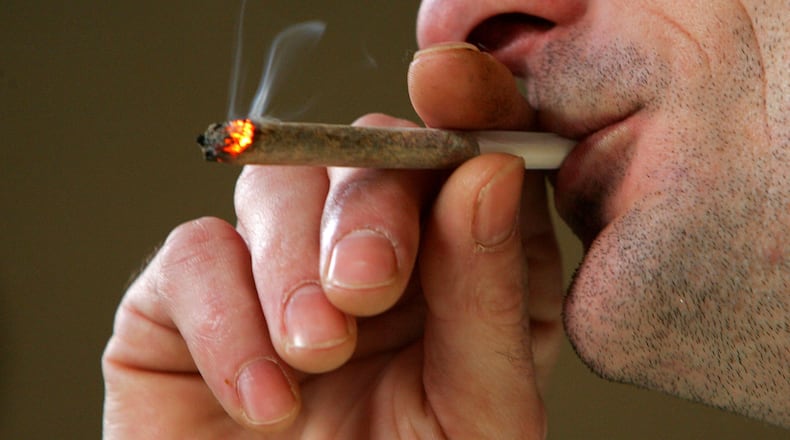In the city of Doraville, a small suburb in northern DeKalb County, Black residents make up less than 10% of the population. Last year, however, Black people accounted for nearly 75% of the marijuana-related arrests made by the Doraville Police Department.
They were among more than 100 people arrested in Doraville in 2019 because they were allegedly found in possession of less than an ounce of marijuana, according to police department data.
“When I saw that there were over 100 people that were put in jail that would not have been put in jail except for the possession of a small amount of marijuana, I felt we needed to do something about that,” said Doraville Councilwoman Stephe Koontz, who sponsored an ordinance to decriminalize marijuana possession under one ounce. “That’s 100 people that didn’t need to spend the night in jail.”
The City Council unanimously passed the ordinance Monday night; it goes into effect immediately.
Under state law, cities and counties do not have the power to legalize marijuana possession, which remains a misdemeanor in Georgia. But they can reduce the penalties so it no longer necessarily leads to an arrest. Doraville, which has over 10,000 residents, joins more than a dozen local governments in Georgia that have also decriminalized possession by instituting fines that can be paid in Municipal Court.
Adults in violation of the ordinance are subject to a $75 fine for the first offense, and $150 for the second offense in a year.
“I see this as a victimless crime,” said Koontz, who has been working on the issue for over a year. “Simple possession really doesn’t have an impact on public safety or other people’s lives.”
Clarkston was the first Georgia city to pass a similar ordinance in 2016. Since then, Atlanta, Savannah, Augusta-Richmond County and Macon-Bibb County are among the large local governments that have passed local decriminalization ordinances.
Under current state law, the punishment for simple possession could be up to one year in jail or a $1,000 fine.
Municipal rules also can’t impact every case involving weed; officers can still choose to arrest someone and charge them under the state law. And if a suspect is charged with marijuana possession on top of a more serious criminal offense, the case has to go to state court and the defendant would be subject to the harsher penalties.
According to data provided by Doraville’s police Chief Chuck Atkinson to the City Council, 135 people were arrested last year and charged with possession of less than one ounce of marijuana. In just over 100 of those cases, possession was either the only charge or the only arrestable offense.
Of those arrested, 98 were listed as either Black or “Black, non-Hispanic,” according to the data. Eighteen were white, and 18 were “white and Hispanic.” One was Asian or Pacific Islander. Atkinson pointed out in a letter to the council that the offender’s races listed in the police reports are “based on the officer’s judgement,” and are not necessarily how arrestees identify themselves. According to Census estimates, about 55% of Doraville’s population is Hispanic or Latino, and 15% is Asian.
“”We have overcriminalized drug use for far too long,” Mayor Joseph Geierman said in a statement. “Marijuana is safely regulated and legal to use in half the country but in Georgia, people are imprisoned and their lives are ruined, with people of color being disproportionately targeted and sentenced for the offense. This new law is a small step towards addressing that inequity.”
Advocates in Georgia have pushed for the state to decriminalize or legalize marijuana possession, citing the well-documented racial disparities in arrests and arguing it does not pose a public health risk. Top state leaders, however, have said they do not support such measures.
About the Author
The Latest
Featured




